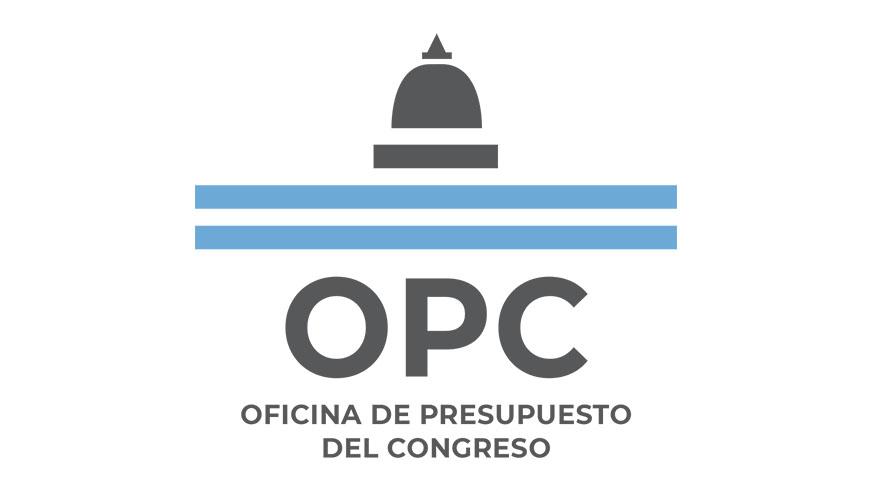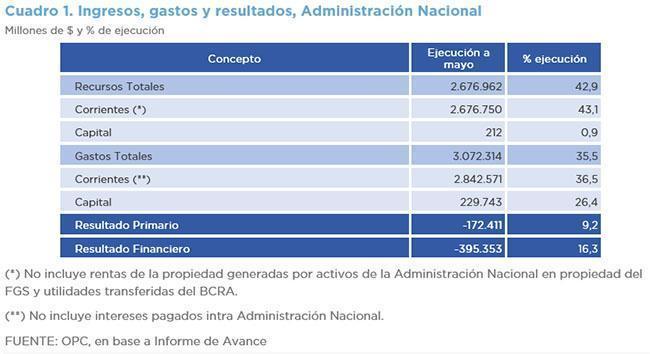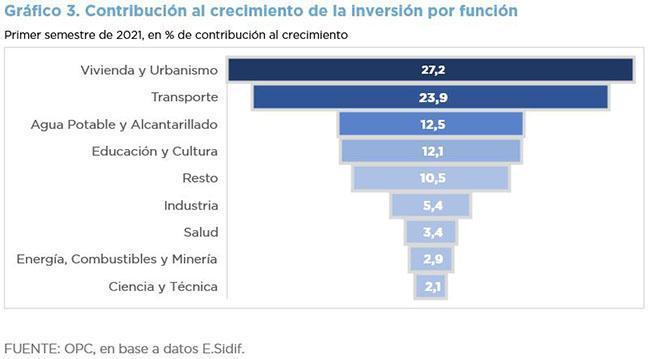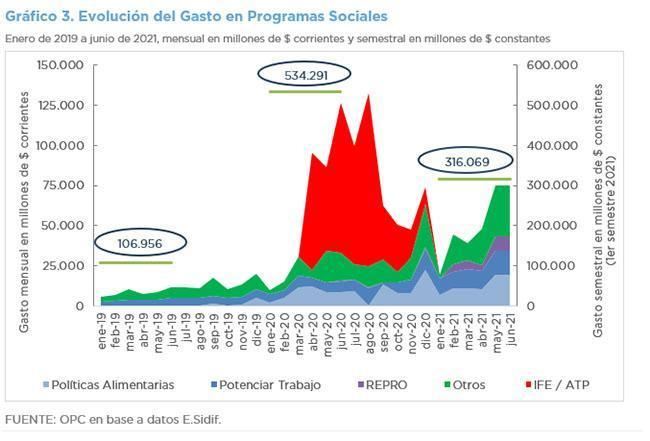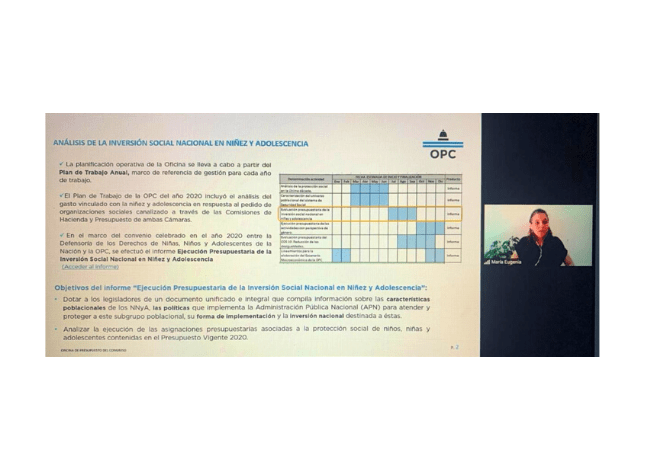
THE OFFICE FOR THE DEFENSE OF THE RIGHTS OF CHILDREN AND ADOLESCENTS AND THE OPC PRESENTED THE MONITOR OF BUDGETARY ACTIONS FOR CHILDREN AND ADOLESCENTS
Within the framework of cooperation actions between the two organizations, the Director of Studies, Analysis and Evaluation of the OPC, María Eugenia David Du Mutel de Pierrepont, introduced the new platform to governmental sectors involved in budget monitoring and evaluation and substantive sectors related to children and adolescents’ policies.
This OPC initiative, supported by the Office for the Defense of the Rights of Children and Adolescents, aims at democratizing information on budget allocations to improve the quality of life of children and adolescents in our country. The platform provides weekly updated information on the budgetary execution of programs aimed at this target population as well as the production of goods and services related to them.
Representatives from the Office of the Chief of Cabinet of Ministers, the Ministry of Economy, the Ministry of Social Development, the Ministry of Education, the Ministry of Public Works, the Ministry of Health, ANSES and UNICEF-Argentina participated in the meeting organized by the Office for the Defense of the Rights of Children and Adolescents.

